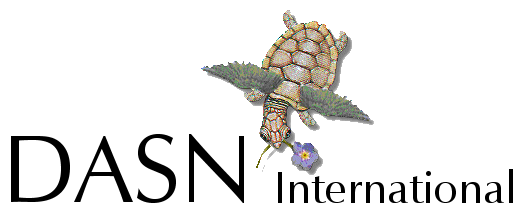ADI 2001 New Zealand - Presentation by Morris Friedell- Slides 1 to 4
We survivors of the trauma of a diagnosis of dementia have once been in the world of TABs - we know both worlds intimately - so are in a unique place to build bridges. Our cognition is faltering, but our emotional sensitivity remains and can be harnessed for bringing healing to ourselves and our family. By leading this workshop and engaging with TABs in an exploration of co-dependency, we can work together to better understand the dynamics of communication and of dysfunction that can co-occur with the presence of dementia within the family. |
 Slide 1 | ||
Slide 2 We PWiDs may at first excessively cover up our deficits and try to act cheerful and normal. This is an example of co-dependency, where we put our family’s assumed need ahead of our honest self expression. It may result from cultural prescriptions to “be strong.” Or brain damage, particularly if it is diffuse or involves the frontal lobes, may impair our judgement so we fail to process the challenge of our diagnosis with dementia. For a variety of reasons, we pretend at normalcy. Then as the disease progresses, we tend to give up, because maintaining this facade becomes impossible and exhausting. It is just so attractive to become a passive and dependent victim—this can be rationalized as “acceptance.” We can become co-dependent and dependent at the same time, in different areas. |
 Slide 2 | ||
Slide 3 Persons with cancer have often found that it is good to communicate openly, rather than cover up in shame. We think the same applies to us, so we have “come out” as PWiDs. If we openly and honestly speak our minds and hearts - if we tell it like it is for us and say what we want, we are breaking out of our patterns of co-dependency and dependency, and reclaiming our lives. We PWiDs should seriously consider taking the initiative in communication. Even though we are slower, we have the advantage of having been where you are. Being a TAB and living in your world is deeply ingrained in our largely-preserved long-term memories. Who would know a second language better - a person who reads quickly or a person who has lived where that language is spoken? |
 Slide 3 |
||
Slide 4 One thing that can’t be overemphasised is the complex, overwhelming, often obscure and gradual yet irregular progression of losses that occur in dementia. Normal grief reactions have evolved to cope with sudden death, promoting a healing process. The analogy is the frog being dropped into hot water, who will jump out and save itself. But in cases of ambiguous loss, when dysfunction is reminiscent of normal behavior under stress and so-called “windows of lucidity” make the PWiD at times seem almost normal, the grief reaction is frozen. It’s like the frog being placed in cold water which is slowly heated to boiling, who stays there and dies. Co-dependency may be a sign of unresolved or 'frozen' grief. Additionally, it may be a feature of a complicated grief reaction, because there was a prior family dysfunction and vulnerability to the stress of dealing with dementia. |
 Slide 4 |
||
| Ahead to Next 4 Slides--> | |||

